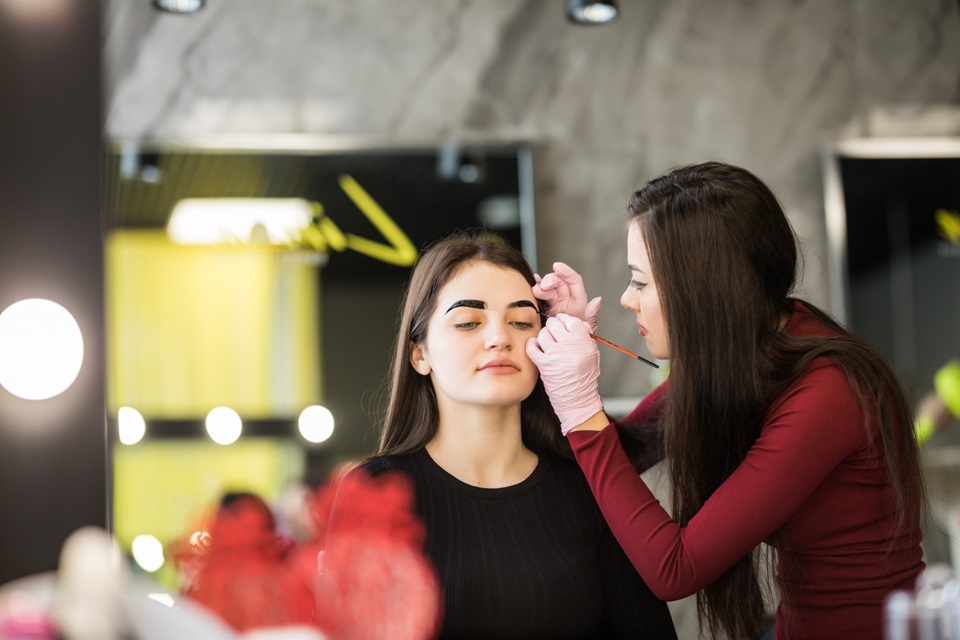Developing your abilities and practicing are the keys to realizing your creative potential. It is also important to seek feedback from others on how well you manage and execute innovative projects. Ensure you have a clean studio and a professional working space. Consider specializing in specific areas of beauty, such as microblading, eyeliner, lips, or areola repigmentation.
Personality
The cosmetic industry is booming, and permanent make-up artists are among the top earners. However, this career field isn’t easy and requires much time and dedication to master the skills needed. Successful permanent make-up artists have a creative spirit and a solid work ethic. They’re intuitive and can read clients’ wants through body language and other discreet clues. They understand the value of clear communication and can quickly adapt their suggestions to suit a client’s unique face shape or skin tone. Expertise in particular area, such as the best microblading Long Island NY, areola restoration, ombre powder brows, lip blush tattoos, and eyeliner tattoos, can be found among permanent make-up artists. They should be willing to train and improve their skills and market themselves appropriately continuously.
Skills
Having the right skills is critical to becoming a successful permanent make-up artist. You must have a strong desire and passion for the craft of pigmentation. You should be good with your hands and able to perform small movements for precise work. You must also be able to hold your nerves as the process may cause customers discomfort. During your training, you’ll practice models to learn and develop your skills in realistic conditions. Practicing with your friends or family is also a great way to get real-world experience before you begin working with clients. Network with other artists, attend workshops and trade shows or join professional organizations like the Society of Permanent Cosmetics Practitioners (SPCP). These resources can provide education, industry news, and networking opportunities.
Experience
To practice professionally, permanent make-up artists need to meet specific licensing requirements. It typically involves completing a course, gaining apprenticeship experience, and practicing consistently. Additionally, joining a professional organization is essential. It’s also helpful to have a portfolio of before-and-after photos. These will help you demonstrate your skills and build trust with clients. Lastly, it’s essential to acquire sterilization and bloodborne pathogen training. Ultimately, this is an investment in your career and the safety of your clients. Be sure to choose a reputable school that offers comprehensive courses and support.
Knowledge
As a permanent make-up artist, you must know how to use various equipment and techniques. You’ll also need to be familiar with sterilization and sanitation practices. You’ll want a clean, safe workspace that meets all state health and safety regulations. It’s essential to find comprehensive PMU training that gives you both theory and practical experience. Many online programs offer a virtual learning experience, including practice on fake skin and worksheets. You’ll also need to stay up-to-date with new trends and techniques in the industry. You can stay on top of trends by reading trade journals, networking with other beauty professionals, and attending conferences and workshops. Continuing education will allow you to expand your services by offering advanced treatments, such as scalp micropigmentation and areola restoration.
Training
As with any career, training is essential to become a permanent make-up artist. Different training options are available, from intensive crash courses to full apprenticeships. Some programs also offer one-on-one mentoring from experienced professionals. Before investing in any PMU training program, ensure that you want to do this. This work deals with the nitty-gritty of human skin, hair, and blood. If you are squeamish, there are better careers for you than this.
During your training, you will practice on fake skins and actual clients. This hands-on experience is vital to mastering your skills and delivering high-quality results. You will learn how to mix pigments and understand color theory. It will help you create natural-looking colors that complement your client’s skin tone and facial features.

